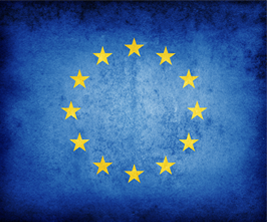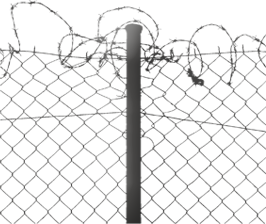
It is true that the economic crisis has shaken the European Union. Although it is mainly the member states’ governments which are accountable for the causes of the crisis and its management, people’s misgivings about the European Union are growing. They forget that the EU is one of the best, most exciting and most successful political ideas on this planet. We are living in an enviable part of the world. With all the things we have experienced on the European continent, we should be concerned only with one thing: to continue to build and develop the European Union, which is home to so many nations today.
Not everything is good. Clashes between countries and regions have become more visible. One-sided austerity policy under the leadership of the German chancellor Angela Merkel has made the member states drift further and further apart. Differences between North and South, East and West, which have always existed, are becoming a burden. Many Europeans have felt belittled by the schoolmasterish style of German politicians during the euro crisis. Politics from Berlin no longer allows for real emotion or conviction about what makes our common path good and successful.
That is why I want to make another German voice heard during the European Greens’ election campaign. It is true that we have some things in Germany which may be of interest to other EU countries: the turnaround in energy policy and our dual vocational education and training system are only two examples. But the other member states must be given opportunities to develop European projects from them. Germans, too, must be prepared to learn from others’ successes. I’m thinking of minimum wages, schools, flood prevention and health systems.
Overcoming national limitations, i.e. the idea of federalism, is our guide in European politics. The most important thing in following this path is citizens’ trust in European politics. The EU must guarantee freedom and security. But the great European promise of a better life must also be revived. People – and not just those in crisis-ridden countries – must be able to believe in a better common future. That is the basis for trust in the European Union.
I am tired of more and more summits in Brussels, where decisions are just postponed and the most important question seems to be whether the German chancellor or the French president has won or lost. We do not need yet more Eurogroup meetings or even an exclusive parliament just for eurozone countries. What we need are strong common institutions and a European parliament that provides all-encompassing democratic control and really has a say on such important matters.
It will not be easy to achieve all of this. Many things will not be possible without modifications to the treaties. But they must not be decided inside the Brussels bubble. After the European Parliament elections, I want a democratic convention which allows for necessary changes to be discussed publicly. Participation and transparency are indispensable in this process. This is the only way in which people can come to understand Brussels and European democracy and grow to be a living part of it. All of us in Brussels are responsible for achieving this objective. Experience has shown that time and again the EU has needed to be guided through difficult phases. If we think back to what happened on our continent during the last century and look at other parts of the world, we realise that it's worth it. Europe continues to need two things: plenty of passion, but also patience.

It is wearing us down. One-sided austerity policy has led the crisis-ridden countries into a downward spiral. During my visits to Portugal, Spain and Greece I could see what is going wrong. The most recent warning was the closure of the Greek state television channel ERT in June 2013 in order to meet the required number of job cuts in the civil service.
Wherever I went it was clear to me that people in the so-called crisis countries feel let down by the EU, in spite of EU aid packages. At the same time – in Germany and other countries – there is a growing sense of having to fund irresponsible policies in Greece and elsewhere. Both sides like to blame us in Brussels. But the European Parliament has hardly any say when it comes to financial crisis strategy. The member states’ governments make sure of that, including the government in Berlin. Stability programmes are decided without any real democratic control or participation by the European Parliament.
I do know there are no magic potions for dealing with this difficult situation, and that we still have a long way to go. In order to succeed, solidarity among European countries is just as important as solid budgets in those countries that have had to shoulder the additional burden of bailing out the banks. Many people I met – in Greece, for instance – want a new beginning in their country and for their country. But they must be given the opportunity to make this happen. Greece is only one of the countries in need of investment to boost the economy. Given that there is mass unemployment, which has hit young people particularly hard, we urgently need the means to help those countries. But the general direction matters too: sustainable economic recovery requires measures against climate change and measures that promote an efficient use of resources. A turnaround in energy policy would be a good direction for all crisis-hit countries. It would save on oil, which is expensive, create jobs and contribute to climate change control.
So far, the focus of crisis policy has been on countries’ debts. Nobody has dared touch the banks, which harbour considerable risks. New and solid EU regulations for the financial market are needed to prevent another banking and financial crisis. Until now, we have only managed to progress at a snail's pace. The banking lobby is more influential than, say, consumer advocates. We can no longer allow dubious derivatives to be traded in much the same way as before the crisis – without any risk insurance on the part of the banks.
European banking regulations were only decided now, five years after the 2008 collapse of the banking sector. European regulations to secure bank deposits are still not in place, but they could prevent a repetition of such events.
It is essential that ailing banks have the option to liquidate, so that citizens must never again assume liability as their creditors. I also continue to support the idea of a European rating agency.
The promised financial transaction tax must be introduced in all EU member states. And state revenues will improve if multinationals pay their taxes where they make profits. To make this possible, tax competition within the EU must end.
Furthermore, we must finally put an end to tax havens, so that all citizens and not just honest taxpayers contribute equally to public services and to debt reduction.

I have been a member of the European Parliament in Brussels for close to ten years now, but what happened in July 2013 was a first: German Chancellor Angela Merkel stopped a compromise on CO2 emission limits for automobiles which had already been agreed between the President of the European Council, the European Parliament and the Commission by personally picking up the phone and asking other heads of government for their support in blocking the deal. An outrage! Apparently the interests of car makers like BMW are more important than climate protection targets. Merkel’s encroachment exposes the fact that the often-cited consensus on climate protection does not exist.
Back in 2008, the EU climate and energy package actually constituted a good start: The EU member states committed to a 20-percent reduction of CO2 emissions by 2020, increasing the share of renewables to 20 percent and lowering energy consumption by 20 percent. At the time, Angela Merkel spearheaded the initiative.
Of all things, the goal of emissions reduction is now beset by an utter lack of ambition, not only in the automotive industry or on the part of Angela Merkel. Today the EU has already come close to reaching its target for 2020 – not least due to the economic crisis. The excess supply of emission permits on the market renders emissions trading – one of the EU’s most important climate policy instruments – ineffective.
This has to change! So far conservative and liberal majorities in the European Parliament and European Council have blocked the further development of Europe’s climate and energy policy that is so urgently needed. Merkel’s veto in support of the gas guzzlers is just one example of this.
I have attended many international climate conferences. The next major meeting will be held in Paris in 2015. Now is the time to put increased pressure on the protagonists in Brussels to make that summit a success. The EU’s 2020 climate protection target needs to be raised to at least 30 percent without delay, binding targets for 2030 must be agreed and a swift and comprehensive reform of the emissions trade implemented. This is our only chance of getting other states on board, of reaching an ambitious, binding international climate protection agreement by 2015 and still keeping global warming within the range of two degrees Celsius. The severe, recurring floods – which also wreak havoc along European rivers and streams in ever-shorter intervals – are but one indication of how urgently we need to act.
And yet there is much more we could do right away. We need a European energy transition. It is true: the process in Germany is ailing. However, this is not caused by an inherent weakness of renewable technology. The reason is that the German government lacks the will to make the energy transition a success. We must gather new momentum to restructure the energy sector, we need to move away from the coal- and nuclear-based energy mix – throughout the EU.
Greater energy efficiency and the expansion of renewables hold great potential and opportunities which are by no means limited to the environment: We can make an affordable, reliable and environmentally sound energy supply for all EU citizens a reality. The European energy transition can reinvigorate the economy. It can make us less dependent on Gazprom and oil sheiks. The energy transition can be a new rallying point for Europe, a project the entire union can identify with. I therefore propose a new energy pact – similar to the former European Coal and Steel Community which served as the foundation on which the European Union was built. The expansion of renewables, systematic energy conservation and exploiting the immense efficiency potentials will not only bring innovation and jobs to the European economy and industry. They are significant steps on the way toward a sustainable economic system.
I see the Greens as the ones whose task it is to keep on paving the way for this transition. I am just as serious about raising the awareness and understanding of all citizens on this issue as I am about setting ambitious, binding climate protection targets.

The Fukishima disaster was the final wake-up call for the majority of European citizens to support the phasing out of the high-risk technology that is nuclear energy. More than two years after the catastrophic events, the reactors at the Fukushima site still are a ticking bomb. Any medium-strength earthquake could further exacerbate the situation. Radiation is leaked every day.
When I visited Japan in 2012, I was already shocked by the way in which the Japanese government and nuclear industry were attempting to downplay the immensity of the problems at hand. So far, the international community has tolerated the dangerous lie of Fukushima being under control. The decision to hold the Olympic Games in Tokyo must bring this trivialization to an end. Together with experts around the globe, I am campaigning for an international Fukushima task force which will have to make every possible effort to contain the impact of the disaster and more effectively protect the local population. Fukushima and Chernobyl are two stark and terrible warnings: Nuclear energy is dangerous and will cost us dearly. Nuclear waste will emit radiation virtually forever, and a safe, permanent waste repository does still not exist anywhere in the world.
This is why I have been deeply involved in the anti-nuclear movement for over thirty years to fight for the abandonment of nuclear energy. Thanks to the commitment of countless citizens, we have achieved a lot. Half of the EU member states either do not have any nuclear power plants in operation or have passed legislation for a nuclear phase-out. National resolutions are a good thing. Nevertheless, a successful nuclear phase-out and energy transition require a solid, Europe-wide approach.
The United Kingdom and the Czech Republic are planning the construction of new nuclear facilities. Hungary intends to extend the service life of old, decrepit nuclear power plants. And Brussels is to lend a helping hand: The European Commission is drawing up plans to allow future subsidies for nuclear energy as an ostensibly “climate-friendly” power source. EU competion law currently does not permit this – and that is how it should stay.
The nuclear power industry has enjoyed numerous competitive advantages for far too long. The legal insurance requirements for the operating companies to cover nuclear accidents are insufficient. Decommissioning and permanent waste storage will incur massive costs in the future and the provisions set aside by the nuclear industry are a far cry from the actual expenses to be expected. European regulations on nuclear incident liability and on public funds for the decommissioning and dismantling of power plants are needed urgently. It is high time for the major companies to finally assume financial responsibility for the problems they have created.
The EU’s nuclear plant “stress tests” are a dangerous alibi for old and high-risk nuclear facilities. Critical risks such as material fatigue, human error, or the impact of a plane crash, remain untested. As long as nuclear power plants are in operation, the EU needs to have robust nuclear safety regulations in place which prescribe legally binding standards based on current research and technology. Outdated, high-risk reactors, nuclear plants in earthquake-prone regions, or facilities without secondary containment, must be shut down immediately.
We also need clearly defined European regulations on nuclear waste handling with stringent, legally binding standards. Exports to third countries must be prohibited.
Germany has just embarked on a new search for a final storage site. It is imperative that Gorleben be taken off the list for good.
Other European countries should also begin procedures to prepare for a responsible way of storing nuclear waste. In this process, the citizens must have a strong influence and undeniable rights.
Despite all the efforts for more safety: the best way to achieve it is by decommissioning the nuclear power plants!

Edward Snowden deserves not only the highest accolades from human rights organisations. The former member of the US secret service NSA uncovered the systematic violation of our basic rights. We Europeans should thank him for that with more than just cheap words. We must help him. Instead, we are leaving him stranded in his involuntary Russian refuge.
The news of the secret services’ wide-ranging surveillance activities caused an uproar in Europe, and Brussels in particular. But what remains after the smoke has cleared? Not very much.
All citizens have the right to full protection of their data and privacy. This is how it is laid down in the European Treaties and Charter of Fundamental Rights. We must make every effort to ensure that these rights do not merely exist on paper.
The European Parliament is currently working on reforming the European Data Protection Directive. Or, more precisely put, struggling for it. Edward Snowden’s disclosure came at exactly the right time. For it is only in light of Prism and Tempora that the demand for dependable ground rules for protecting the private domain has been put back on the agenda: Specifying data which network providers are prohibited from passing on, obtaining user consent prior to data being circulated, the “right to forget”, i.e. removal of data from the Net, are hotly contested demands put forward by the Greens. The idea of imposing substantial fines on non-compliant providers is even more controversial.
I was already aware of the fact that an e-mail message is more akin to a postcard than to a sealed letter long before Edward Snowden publicized his information. But it is only now that I have begun encrypting my virtual mail. Everyone bears at least partial responsibility for his or her data on the Internet. The point I would like to get across is that everyone should realize that minimizing one’s data footprint is still the best way to protect anything private.
Are there major consequences in the wake of Prism and Tempora? The EU has a chance of improving data protection at the international level as well. The European Commission is negotiating a free trade agreement with the USA on behalf of the governments of its member states. I believe that talks should focus first on international standards for data privacy. There are many factors that speak against the Transatlantic Trade and Investment Partnership (TTIP). If there is no guarantee that security agencies and secret services will respect the basic civil liberties, there can be no agreement. That is what I am asking of EU Commissioner De Gucht and the other negotiators in Brussels!

Our political adversaries like to accuse the Greens of wanting to ban everything that’s fun. I cannot relate to this at all. For example, when I advocate leaving your car where it is and using your bicycle more often, I am obviously arguing in favor of the environment and climate, but also because riding your bike simply is more fun. The same goes for food: I do enjoy a tasty steak – just not every day. And above all, I don’t want it to be pumped full of antibiotics and GM feed. In recent years, a string of food scandals has shown that our meat production system is moving in the wrong direction. The lower the trading price for meat is, the less attention is given to animal welfare, health and quality. Production chains with a multitude of stations spread over several countries are susceptible to fraud and quality deficits.
These are some of the reasons why I want to see a different kind of agricultural policy here in Europe. We must systematically overcome and remove our dependence on imported animal feed, pesticides and antibiotics. We need to promote small-scale farming instead of industrial agriculture. We want an agricultural policy which makes it easy for farmers and consumers to opt for sustainable cultivation and food awareness. Organic farming has pioneered this approach – but it should no longer be just a privilege for the few.
At present, 20 percent of all agricultural enterprises receive 80 percent of all direct payments from Brussels. There are a handful of large agricultural firms across the EU that receive more than 300,000 euros in subsidies. We, the Greens in the European Parliament, had therefore campaigned for reasonable subsidy caps, but unfortunately did not succeed. Thus, it remains in the hands of the individual member states to establish such limits.
Whether it is dairy farmers or beekeepers – no matter who I talk to, all agree on the point that we need diversity instead of monocultures. Crop rotation, grassland, blooming strips and hedges contribute to healthy soil. They are also a remedy against excessive pesticide use, chemical fertilizers and aridity. Furthermore, greenhouse gases are drastically reduced. Our cows need pastures and domestic protein plants, not imported, genetically modified soybean fodder. We need to move away from factory farming with its massive livestock buildings mushrooming everywhere.
That is also why I am so critical of the negotiations on the trade agreement with the United States. Does our small-scale farming sector even stand a chance against American mega-competition? European regulations, e.g. on animal feed, genetic engineering and the use of antibiotics, must by no means be watered down. Standards first, negotiations second!
Achieving an agricultural shift will take endurance and the necessary political and public will. Farmers and food consumers can succeed only by working together.

“Centres of Hospitality” is what the Greek government calls its refugee camps. This term illustrates the cynicism of Europe’s asylum and refugee policy. Hospitality is the last thing that these holding and deportation camps are about, not just in Greece, but elsewhere as well. Youths confined and separated from their families, without school or healthcare. People whose only crime is their escape to Europe are treated like convicts, detained indefinitely. They have no legal counsel, and are left hungry and dirty. In these camps along the Mediterranean, the EU is betraying its own values.
The new EU asylum legislation passed by a conservative majority in June 2013 is a bitter disappointment: Not a trace remains of our demand for consistent refugee protection. Yet we are in dire need of uniform, reliable standards of protection. Persons in need of protection must again have a real chance of finding asylum in the European Union. The Dublin II regulation stipulates that refugees may only apply for asylum in the state that was their point of entry into the EU. This regulation in conjunction with the country’s geographic location is why Greece has so many asylum seekers. They live as illegal residents or remain in camps under degrading conditions. The wealthy countries of the north, including Germany, are making sure that the refugees stay far away. Still, they are just as responsible for the misery in the camps of Greece and Lampedusa as well as for countless refugees drowning in the Mediterranean.
The EU must finally assume the kind of humanitarian responsibility that corresponds to our power and prosperity, and respect international law. The mass exodus from Syria reminds us of this daily.
The EU must – unfortunately – also see to it that basic rights are upheld internally. Problematic constitutional amendments, infringement of LGBT (lesbian, gay, bisexual, transgender) laws, continuing discrimination against Sinti and Romanies, or the erosion of press freedom, are growing problems in a number of EU states. All too often these conditions are tacitly accepted in Brussels because the members of the big “people’s” parties stick together.
It would be helpful if the populace exerted more pressure. What we require of the European institutions is more transparency and more possibilities for civic participation. The European citizens’ initiative is a good instrument which gives every individual a tangible means of getting involved.
Apart from all the internal efforts, the EU must also engage its immediate neighbors to improve the human rights situation and strengthen democracy. I have traveled to Ukraine repeatedly. Politicized justice as in the case of Yulia Tymoshenko must not be tolerated. The fates of Mikhail Khodorkovsky, the women of Pussy Riot and blogger Alexei Navalny call for a similar stance toward Russia. Developments in the EU’s neighborhood to the east and south – where what we knew as the “Arab Spring” came to an abrupt end – are a resounding call for European involvement. Democracy and civil liberties will have to be fought for and won within the respective countries, but we can and must help. We can provide support for business development and education. We need to export fewer arms and more opportunities, and come to the aid of democrats by improving our asylum and immigration laws. The EU has selfishly and unscrupulously collaborated with dictators for far too long.